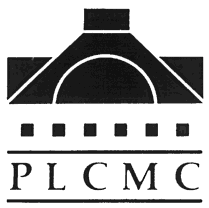Challenges

PLCMC faces some difficult issues in the near future, particularly as it approaches the completion of its five-year plan in the year 2000.
- To remain among the nation’s top libraries, it must find the necessary funding–beyond what it already gets from the taxpayer–to add newer technology and replace worn and obsolete equipment. But technology alone will not guarantee that PLCMC will become the best library in the country, although it could mean that it might become the best equipped. Excellence is something that the staff of PLCMC know a great deal about; their work and activities have demonstrated their own commitments to excellence. Yet something more than dedication will be needed.
- The library faces the same pressures to do more with less that every public library in the nation is confronting. It is unrealistic to assume that PLCMC can escape the difficult economic times that have beset the United States in the final years of the century. Expanded job duties will probably be one result of the pressures to achieve more with less at PLCMC. More important, the need to resolve tensions between old and new, traditional and modern, print and electronic, will probably require PLCMC to become more explicit in how it believes a balance between those contending forces can be found and maintained. One way of finding that balance will be by conducting user studies and market surveys to determine which services and information resources the community needs and wants.
- The Public Library of Charlotte and Mecklenburg County sees its present programs as customer driven. In the future, it must make even greater efforts to find out more systematically how the community sees the public library of the future and what that vision will mean in the next century. As a library that has received deserved national recognition, PLCMC must continue its high level of planning and activity if it is to accomplish its primary goal–to be the best in the nation. It must also find ways to balance growth with stability of service and the push to move forward with the time to listen to user reactions to change. Luckily for the community of Charlotte, the PLCMC has proven that it knows how to work hard to help create an informed citizenry that can contribute to the business and political life of their community.
From the publication Public Libraries, Communities, and Technology: Twelve Case Studies, published by The Council on Library Resources, ©1996. For more information contact
The Council on Library Resources, 1400 16th Street NW,
Suite 715, Washington DC, 20036. Phone (202) 939-3370. Fax (202) 939-3499.

